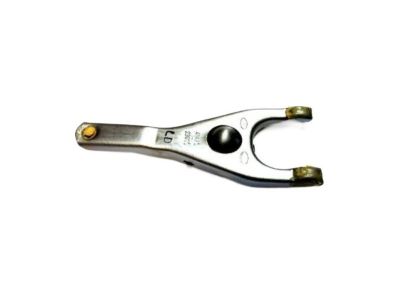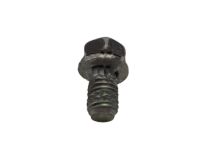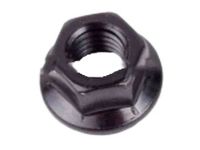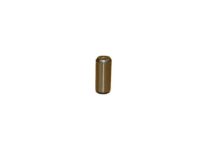On 1.6L models without a dual clutch assembly, the release bearing and cylinder are combined into a concentric release cylinder assembly, mounted over the transmission input shaft, and the release bearing cannot be replaced separately. To remove the clutch release cylinder, unbolt it without disconnecting the fluid line between the master cylinder and the release cylinder, and suspend it out of the way with a piece of wire, taking care not to depress the clutch pedal while unbolted. For 1996 through 2000 models, remove the clutch release lever pin from the transaxle to allow for transaxle removal, then proceed to remove the transaxle. For 1996 through 2000 models, use snap ring pliers to expand the retaining clip, push down on the release bearing to separate it, and lift it off the pressure plate. For 2001 and later models, pull the clutch release fork off the ball stud and slide the release bearing off the input shaft along with the release fork. To inspect the bearing, hold it by the outer race and rotate the inner race while applying pressure; if it doesn't turn smoothly or is noisy, replace it. Wipe the bearing clean and check for damage, wear, and cracks, as it is common practice to replace the bearing during a clutch job to prevent future failures. Avoid immersing the bearing in solvent, as it is sealed for life. Check the release lever for cracks and bends. For installation, fill the inner groove of the release bearing with high-temperature grease and apply a light coat to the transaxle input shaft splines, ball stud (for 2001 and later models), and the front bearing retainer. Lubricate the release lever contact points and release cylinder pushrod socket with high-temperature grease. For 2001 and later models, attach the release bearing to the release fork. For 2000 and earlier models, lightly lubricate the pressure plate diaphragm fingers, install the release bearing, and secure it with the snap-ring. For 2001 and later models, slide the release bearing onto the transaxle input shaft front bearing retainer while passing the end of the release fork through the opening in the clutch housing, then push the clutch release fork onto the ball stud until firmly seated, applying a light coat of high-temperature grease to the face of the release bearing. The remainder of the installation follows the reverse order of removal.
Posted by HyundaiPartsDeal Specialist 













